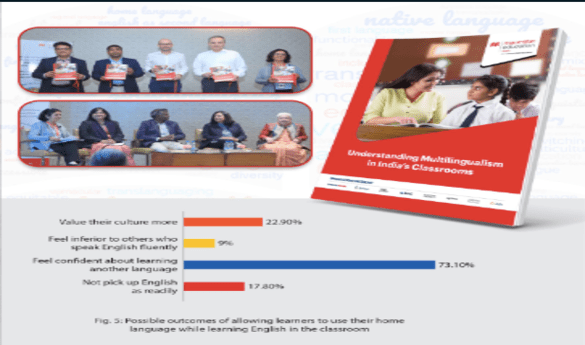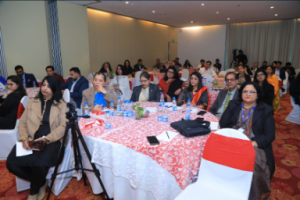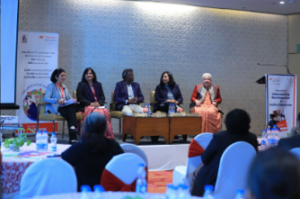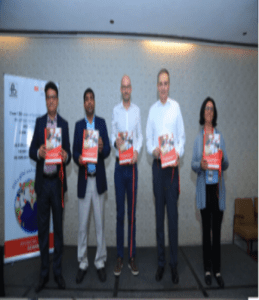Multilingualism in the classroom drives benefits beyond learning’ – research by Macmillan Education India
With the National Education Policy of India (NEP 2020) focusing on the use of home language in the classroom, Macmillan Education India undertook a survey to build understanding and support the implementation of multilingualism. As part of the study, the company reached out to a thousand practising teachers, to explore the understanding and need for multilingualism in classrooms.The study aimed to understand the perceptions of teachers on multilingualism and its significance in Indian classrooms in the coming times. Findings varied concerning the participating teachers’ understanding and support of the actual concept of multilingualism, its impact and effectiveness.
The study identified the following:
- While the participants perceive multilingualism differently, they all welcome the use of more than one language in their classes
- Use of home language can support the understanding of academic concepts
- Usage of multiple languages in the classroom encourages diversity and inclusion
The report on ‘Multilingualism in India’s Classrooms’ was released by Biswajit Saha, Director Training & Skilling, Central Board of Secondary Education, Frank Vrancken Peeters, CEO, Springer Nature Group, Joachim Krieger, MD, Professional and Education, Springer Nature and Rajesh Pasari, MD, Macmillan Education India and Vandana Juneja, Director, Marketing at an event held in Delhi.Addressing a gathering of educators, Frank spoke about Springer Nature’s emphasis on research to advance learning and opening doors to discovery. He said, ‘Springer Nature is committed to publishing trusted research. This report supports the development of a new idea which could positively influence learning outcomes and play a part in offering a solution to the practical challenge of teaching in linguistically diverse classrooms.’
The survey showcased possible outcomes of allowing students to use their home language while learning English in the classroom.
Highlighting the significance of the survey report, Rajesh said, ‘The report documents the multilingual reality and various teaching practices in classes of English language as well as other subjects all over India. It analyses the potential advantages and challenges of linguistic diversity which can impact the learning of Indian learners in educational institutions.’
At a panel discussion held at the event, panellists Prof. Rama Meghanathan, Professor of English, NCERT, Prof Deepti Gupta, Professor of English, Panjab University and Radhika Gholkar, Head—Academic English, The British Council and Ms Kadambari Lohiya, mentor teacher, Directorate of Education, Delhi all agreed that the multilingual nature of the Indian classroom must be used as a resource so that every child feels secure and accepted.
It is a report which will assist Indian teachers to move confidently ahead with deep respect for our mother tongue and improve learning outcomes by allowing mother tongue in the classroom for higher confidence and conceptual understanding of students.
Looking at the importance of fostering multilingualism in the India education system and its crucial role in promoting diversity and inclusivity. Many big media houses carried our news. Please click below links to read
https://www.theweek.in/wire-updates/business/2023/02/07/dcm58-macmillan-education-india.html






